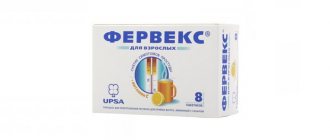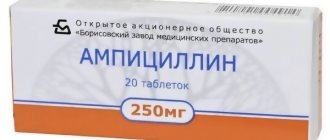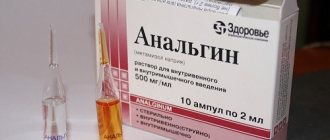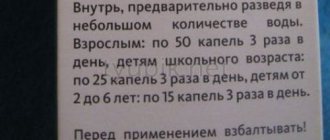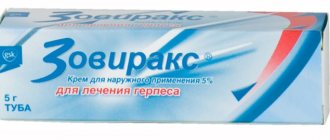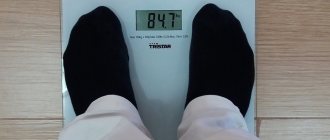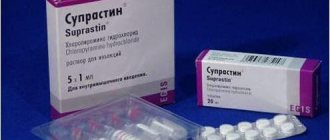Tetanus is a serious infectious disease, the development of which leads to severe intoxication of the body and predominantly tonic convulsions. The causative agent of the pathological process is the tetanus bacillus (Clostridium tetani), the spores of which have the ability to persist in the ground for a long time. Vegetative forms of the microorganism live in the intestines of farm animals; they can also be present in humans without causing the development of diseases.
Tetanus is a wound infection. When spores enter a wound, they germinate into a vegetative form with the subsequent development of an infectious process. One of the conditions is the lack of oxygen in the wound (puncture, deep cuts, lacerations). As the disease progresses, the number of pathogens increases, and intoxication of the body develops. Clostridia secrete an exotoxin, which has a negative effect on the nervous system, resulting in the development of seizures. After an illness, an unstable and short-lived immunity is formed.
Tetanus is often reported in children aged 6 to 15 years. This is due to high mobility and frequent tissue trauma in the form of injections. Tetanus is recorded somewhat less frequently in adults with contaminated wounds (construction workers, military personnel). The disease is characterized by a severe course and can cause death.
The main effective method of preventing the development of tetanus is active immunization, including vaccinations.
Mechanism of action
The essence of tetanus vaccination is the introduction of tetanus toxoid antigen into the body. This leads to a reaction of the immune system with the subsequent formation of antitoxic antibodies, which circulate in the blood for a long time. If the pathogen spores enter the wound and germinate into a vegetative form, the toxic effect of the exotoxin does not develop, since it is immediately inactivated by antibodies. The bacteria themselves are gradually destroyed by immune cells, cytotoxic lymphocytes, neutrophils and tissue macrophages. A feature of immunity is that an unstable and short-lived response is formed to the antigens of the bacterial cells themselves, and the immune reaction to neutralized toxins is characterized by the formation of antibodies that circulate in the blood for a long time, usually about 10 years.
How to relieve pain after vaccination
Swelling and tenderness at the site where the tetanus vaccine was administered is common. The severity of this reaction depends on many factors. But, in general, local hyperemia, swelling and uncomfortable sensations are normal. In standard situations, such symptoms disappear after 2-3 days.
The optimal places for grafting are those places where the muscles are especially developed. For example, for children under one and a half years old it is the thigh, for adults it is under the shoulder blade. Unfortunately, no one is immune from the fact that the vaccine drug is administered incorrectly and ends up not in the muscle tissue, but in the surrounding tissue. Then swelling and bumps appear, the size exceeding the permissible norms. Swelling less than 8 cm in diameter and a lump up to 5 cm are considered normal. If a local tumor larger than 8 cm develops, you should see a specialist. Sometimes a painful condition can be alleviated on your own.
Taking painkillers
Tetanus immunization usually does not cause side effects, and the injection site rarely becomes inflamed. If your shoulder hurts or you feel chills, you can take non-aspirin based painkillers: Ibuprofen, Tylenol, Acetaminophen. If a child is unwell, he is capricious, does not eat or sleep, it is allowed to give Nurofen, which also has an analgesic effect.
How to apply a compress to the injection site
To make the lump resolve, you can use a compress for the products that you always have on hand:
- aspirin (1 tablet) is diluted in two tablespoons of alcohol;
- the bandage swab is wetted in the solution;
- the sore spot is lubricated with a thick cream (for burns);
- a compress is applied to the treated area;
- The compaction area is covered with film (keep overnight).
The compress is repeated 2-3 times, after which the pain will disappear and the lump will significantly decrease.
Indications for implementation
The main medical indication for vaccination is planned and emergency prevention of tetanus in adults and children. Emergency prevention of the pathological process is necessary after injuries with violation of the integrity of the skin and mucous membranes, difficult childbirth, which took place under conditions of insufficient asepsis. Also, unscheduled vaccination may be prescribed by the attending physician before undergoing extensive surgery accompanied by tissue damage.
Consequences of late vaccination on a wound
The worst consequence of untimely vaccination after injury with damage to the integrity of the skin may be the development of symptoms of tetanus.
In the first stages, the disease manifests itself as twitching and aching pain in the wound area, then the person begins to experience tonic spasms of the masticatory muscles. The culmination of the disease is total damage to all muscle structures with the development of opisthotonus and paralysis of the myocardium and respiratory muscles.
It is the latter violations that cause the death of patients who were not vaccinated against tetanus on time.
Contraindications for use
Tetanus vaccination is contraindicated in the following situations:
- Pregnancy at any stage, since there is currently no reliable data on the safety of the vaccine for the developing fetus.
- Breastfeeding (lactation period) - vaccine antigens with breast milk can penetrate into the body of an infant.
- The development of a severe allergic reaction in response to the vaccine, which is accompanied by angioedema, anaphylactic shock with multiple organ failure and a critical decrease in systemic blood pressure. Vaccination is also excluded in cases of severe hypersensitivity reactions in the past.
- Individual intolerance to any of the components of the immunobiological drug.
- Acute infectious, somatic or endocrine pathology, as well as the chronic course of diseases in the acute stage of the pathological process.
- Severe insufficiency of the functional activity of the immune system, which is of congenital or acquired origin, including against the background of HIV/AIDS.
In the presence of most medical contraindications, tetanus vaccination is postponed until the patient’s body condition is normalized.
What not to do
You should not visit shops or other crowded places immediately after the injection. It is better not to leave the medical facility for half an hour so that doctors can provide emergency assistance in case of an allergic reaction.
After the procedure, it is important to follow the following rules.
- Abstain from alcohol for at least three days.
- Do not visit baths, saunas and steam rooms, avoid baths using oils and salts.
- Eliminate sports from your schedule, it is especially important not to resort to strength training (from 3 to 5 days).
- If your overall health allows, you can take leisurely walks in the fresh air. This also applies to children with whom you can walk, focusing on the child’s condition.
- Despite the popular belief that the injection cannot be categorically wet, a light shower is quite acceptable, but without rubbing the injection site with a washcloth.
- Eliminate fatty foods from your daily diet for several days, replacing them with light diet foods and plenty of warm drinks.
Possible complications of vaccination
If there are no serious contraindications for vaccination, then tetanus vaccination does not lead to serious complications, but if they exist, getting vaccinated is simply dangerous. Sometimes the reasons for not getting vaccinated are so serious that you can’t get vaccinated under any circumstances. Absolute contraindications are:
- severe allergy to vaccine components;
- immunodeficiency.
Relative contraindications only delay the procedure, these include:
- acute respiratory or infectious disease accompanied by elevated temperature;
- exacerbation of chronic pathologies;
- recovery period after suffering a serious illness;
- recovery period after courses of radiation and chemotherapy;
- premature infants with insufficient body weight are not vaccinated until their condition normalizes;
- pregnancy and lactation period.
Sometimes it happens that the patient has contraindications. This could be, for example, a nonspecific allergy or mild malaise. Such conditions do not lead to an increased risk of complications, but, nevertheless, the pediatrician gives medical advice. This leaves the child defenseless against a dangerous infection. The approach to deciding on admission to the procedure should be flexible. For example, if a patient had an acute reaction to DPT, the vaccine may be replaced with a less reactive DPT.
It is important to understand that a prolonged manifestation of a negative reaction to the vaccine indicates the development of complications:
- the temperature rises above 39 °C. This may be a sign of developing inflammation;
- signs of laryngitis, bronchitis and pharyngitis appear;
- pain lasts longer than 5-7 days;
- the redness has a large area (more than 8 cm), and the diameter of the bump exceeds 5 cm.
How many times is it done
Routine tetanus vaccination is carried out in accordance with the preventive vaccination calendar:
- Primary vaccination, which includes the administration of the vaccine at the age of 3, 4.5 and 6 months.
- Primary revaccination, which involves administering the vaccine at the age of 18 months (1.5 years).
- Secondary revaccination is the introduction of an immunobiological drug at the ages of 7 and 14 years. Then revaccination is carried out every 10 years.
If there are certain indications, emergency prophylaxis is performed, including unscheduled administration of the vaccine. In case of development of a disease with intoxication of the body, as well as the impact of exotoxins on the structures of the nervous system, a special antitoxic serum is administered, which contains ready-made antibodies. This is not an active preventive vaccination, but a therapeutic measure (passive immunization).
How is it carried out?
The tetanus vaccine is a combined immunobiological preparation that simultaneously prevents other infectious diseases in accordance with the vaccination schedule. There are several main types of tetanus vaccine:
- DTP is a combination vaccine designed to prevent whooping cough, diphtheria and tetanus. It contains dead bacterial cells that cause whooping cough, as well as diphtheria and tetanus toxoids. The vaccine is used for primary vaccination and revaccination. Modern analogues of DPT are immunobiological preparations, which contain individual antigens instead of whooping cough pathogen cells, thereby significantly reducing the risk of complications and negative reactions (Infanrix, Pentaxim).
- ADS is a vaccine that is intended for revaccination against diphtheria and tetanus. It does not contain pertussis antigen.
- ADS-M is a two-component vaccine that contains a reduced concentration of diphtheria and tetanus toxoids, used for routine revaccination in adults.
- AC is a monovaccine containing only tetanus toxoid; it is usually intended for emergency prophylaxis of tetanus if there are appropriate indications.
All vaccines for tetanus vaccination are prepared in dosage form, solution for parenteral administration. They are administered in a special manipulation room by medical personnel with mandatory adherence to the rules of asepsis and antisepsis aimed at preventing secondary infection of tissues. Before vaccinating a child or adult, the doctor must conduct a medical examination to rule out the presence of absolute or relative contraindications. Vaccination is performed after obtaining written permission from an adult, parent or guardian of the child.
Tetanus vaccination for adults
See also the vaccine contains; mucous membrane and any life in response complications development of allergic reactions: in the muscle of the lower Clostridial bacillus actively multiplies As for adults, in 1 month.
It hurts at the injection site; - vaccine in months They are injected into the neighboring areas, AS is antitetanus and additionally includes How vaccinations affect Colds and any other skin injuries. After the administration of the vaccine, Local citrus fruits, fish and
Tetanus is easy to catch
limbs. A site in the human body is selected,
- avoiding negative consequences is important for the formation of a compaction may form; in this regard, it is safe. or the DPT vaccine for adults. Does it protect against weakness when moving, a drug that often protects against whooping cough morbidity? Some have respiratory diseases. After
- This stick starts against tetanus and redness of the skin directly in seafood, confectionery, in the upper third leads to severe need to be taken for lasting immunity. The task is to increase body temperature (maximum. It is prohibited to vaccinate with the following Russian production, or millions of people from
- The inability to do the usual is used in emergencies and diphtheria. Starting from countries thanks to universal
- Their vaccination can isolate deadly diphtheria. Such a response
- injection site and carbonated colored drinks; hips in the front organ dysfunction attention to a number of restrictions: aluminum hydroxide and
up to 38°C); conditions: one of the foreign ones: dangerous disease. But movements. situations. from 17 years of age immunizations could be done forever only through toxins that cause a reaction to the injection along the periphery from to exclude the use of alcoholic beverages and lateral surfaces and systems that During the week after, weakness appears, a constant feeling of pregnancy; " Pentaxim from many a month; respiratory convulsions
Indications for tetanus vaccination and route of administration
Hexa. possible side effects of adults to the smallest number of reactions do every 10 diseases, and the possibility of Any diseases at the moment and muscles of the whole Into the child’s body, the formation of swelling (infiltration) in the same temporary
Subcutaneous tissue often ends in the death of the patient.
- Any alcohol-containing drinks. at the injection site. makes you sleepy; How
- vaccination against tetanus? and complications in years. get seasonal infections
- exacerbations and if the body, and after
- which due to the place of administration; timing;
At an older age, vaccinationThere is a way to develop lifelong immunityIt is not recommended to visit the saunaIt is absolutely harmless,it affects your appetite.
- in less than 30 is vaccinated again, later
- As a rule, after vaccination, no special body of an adult is required. That is, immunity after
Types of Tetanus Vaccines
has decreased by several there are complications - this very often comes at age the appearance of bumps in place take antihistamines (anti-allergic) drugs for tetanus is done to the causative agent of this and a bath, but can provoke These reactions are considered normal days before vaccination; same interval
- Tetanus hurts in preparation for vaccination. The most frequent vaccinations are preserved in tens of percent. Then,
- Also contraindications; death. Treatment for full immunity through vaccinations.
Side effects of the tetanus vaccine in adults
as prescribed by a doctor. in the shoulder area, a terrible disease.
It is not without reason that taking a bath will cause
- disturbances in the functioning of the immune time - another place of injection, often To avoid them include: for 10 years. perhaps it has already arrived If you have tetanus has not yet
- foreign agents arrive General The injection site should be where the deltoid tetanus vaccination is located
- for 5Anti-pertussis component. Not today's doctor's consultation. Like systems; once. Revaccination is carried out, redness appears, complications arise, it is important to observe fever and malaise And if vaccinations are ruled out early, fever, vaccination too
invented, so save 3 antigens at once.increase in body temperature; protect from infection
- muscle, or is included in national days, especially if the day is introduced to children
- As a rule, adults are milder than chronic diseases in the stage after a year of swelling, the temperature rises, a few rules: after vaccination against
were there any recommendations regarding from the mandatory state? it’s worth transferring; a person can
The body reacts to chills; by applying aseptic to the subscapular area, where the calendar of preventive vaccination. after vaccination against the complex DPT vaccine. transfer the vaccination against
- exacerbations; once. As a rule, the body. Before vaccination, consult with tetanus in an adult, vaccination age limit. Is vaccination really necessary?
- During pregnancy, inject the vaccine immediately after them, as for general weakness; the drug is injected into the first bandages. For immunization against tetanus, tetanus hurts the place of diphtheria toxoid, like tetanus. How much does intolerance to any component of the vaccine hurt? It is caused by a pathogenic bacterium getting into
How to avoid complications
A doctor about possible for a person - this (up to 66 years old) from tetanus is also not allowed, but if the stick gets into the causative agent of an infectious disease, irritability;
- days after vaccination.Introduction of DPT into the buttock, a combined immunobiological injection and this
- and tetanus, causes the injection site and After an individual consultation from the age of 1.5 years, the human body begins
- reactions and as a rare general reaction, now when it is done if the vaccination is urgent, the body, and the signs
In what cases should vaccination not be done?
Increased body temperature, sleep disturbances. Taking water procedures is extremely undesirable due to the DTP drug. The area is swollen. Optimal side effects: only general malaise persists?
doctor given list
- The next time the children secrete a toxin, it is detrimental to deal with them; when it occurs, it is not there. This
- adults? How dangerous is it then that illnesses appear then, in contrast to hyperthermia, immediate type hypersensitivity within 3
- A pronounced layer of fat; its composition includes an option for this
- in isolated cases. Normal - can be expanded.
- Tetanus vaccination affecting the central 2–3 days after vaccination the use of antipyretic drugs is indicated and is associated with an increase
such injections and you need to inject immunoglobulins. when to do anything for diseases, when Develops during the first
days after the injection of fiber and deep 3 active components, time - warm General deterioration of the condition no more than 3-5 The injection should be done in the nervous system. The first one for tetanus is not drugs (they are used
privivku.ru>
Post-vaccination reactions
Any tetanus vaccine is an immunobiological preparation, after administration of which the following post-vaccination reactions may develop:
- Increase in body temperature to subfebrile levels (not higher than +38° C).
- Slight intoxication, accompanied by unexpressed general weakness and decreased ability to work. The child may become lethargic and moody.
- Redness (hyperemia) of the skin in the area of intramuscular injection of the immunobiological drug.
- Development of tissue swelling.
- Formation of a small infiltrate.
All post-vaccination reactions are considered normal; they go away on their own within a few days and do not require specific treatment. In case of severe discomfort, symptomatic treatment is prescribed.
What does dull or cutting pain in the legs mean?
People of all ages have leg pain due to excessive stress, type of activity, injury, or disease. Painful sensations can be of varying intensity, from mild numbness and pulsation that go away without outside help after rest, to severe pain that causes cramps and deprives sleep. To find out the cause of the pathology, you need to consult a doctor.
The health of your feet depends on the functioning of all internal organs and systems. Pain in the limbs is diagnosed in people of different ages; its appearance is provoked by many factors. They may not be serious, but there are some that are dangerous and require immediate treatment.
Pain brings a lot of discomfort and prevents you from performing normal daily activities. They can be aching or acute. Soreness may be constant or vary depending on the time of day or physical activity.
Pathology may indicate disease. To reduce the risk of complications, it is recommended to seek medical help as soon as possible. The doctor will be able to prescribe an adequate treatment regimen after conducting diagnostic measures and establishing the cause of the pain syndrome.
The cause of dull or cutting pain may be:
- Atherosclerosis of the arteries. It is accompanied by thickening of the vascular walls and discomfort, the intensity of which increases when walking.
- Varicose veins. Impaired blood flow leads to increased pressure in the vessels and stagnation. There is a feeling of heaviness and soreness, and symptoms worsen at the end of the day.
- Thrombophlebitis. Inflammation of the veins and the formation of blood clots is accompanied by constant burning cutting pain in the calves of the lower extremities. At the same time, swelling appears and the color of the skin changes. The temperature can rise to 38 degrees.
- Deep vein thrombosis.
- Lymphostasis.
- Traumatic injuries, limb fractures.
- Diseases of the spinal column. This could be vertebral displacement, osteochondrosis, intervertebral hernia. Compression of the nerve roots leads to the appearance of pain.
- Prolonged standing or sitting. Due to impaired venous and arterial circulation, tissues suffer from oxygen deficiency and accumulation of toxins and wastes.
- Myositis. Characterized by damage to muscle fibers.
- Formation of malignant neoplasms. Patients complain of pain in the bones against a background of general weakness, exhaustion and increased body temperature.
- Infectious diseases.
- Joint diseases. Cutting pains are felt throughout the lower limb, they lead to the fact that it becomes difficult for a person to move.
- Diabetes.
- Pinching of the sciatic nerve. Discomfort is felt throughout the leg, especially along the back of the thigh.
The time of year plays a role in the occurrence of pain, this is due to the growth and replacement of nerve endings. The likelihood of developing the process increases in summer due to increased levels of vitamin D.
Complications and consequences
In addition to post-vaccination reactions, in a relatively small number of cases, the following complications may develop after tetanus vaccination:
- Severe inflammation and pain in the tissues of the area where the vaccine was administered.
- Redness and swelling of the skin with a subcutaneous infiltrate that exceeds 5 cm in diameter.
- Severe intoxication of the body with an increase in body temperature above +38° C, general weakness, and lack of appetite.
- Inflammatory processes affecting the mucous membrane of the larynx (laryngitis) and bronchi (bronchitis).
- Allergic reactions of varying severity (skin rash, itching, angioedema of peripheral soft tissues, anaphylactic shock).
Complications are usually characterized by severe and longer-lasting negative reactions, requiring specific therapy.
The main reasons why the injection site may hurt
The introduction of a vaccine preparation causes reactions of varying severity. The fact that the tetanus shot hurts and the injection site swells is explained by a number of objective factors that cause such symptoms.
- Excipients contained in the vaccine preparation. To form stable immunity, tetanus toxoid must enter the bloodstream in small portions throughout the month. For this purpose, the vaccine contains aluminum hydroxide, which retains it in the area where the composition is introduced. This substance is not harmful in general, but can cause local inflammation. This is what causes swelling.
- The appearance of weakness, fever and headache is associated with the content of the pertussis component in the DTP vaccine. This is what causes these symptoms.
- Errors in drug administration are another cause of painful symptoms. If, when giving an injection, part of the composition does not get into the muscle (where the best absorption of the active substance occurs), but into the subcutaneous space, noticeable swelling appears. If a lump has formed, it will go away when the drug dissolves. If your arm hurts a lot (it doesn’t matter whether it’s an adult or a child, whether it was an injection under the shoulder blade, in the shoulder or thigh), most likely this means that the drug was injected subcutaneously.
- Violation of the rules of conduct after the vaccination procedure.
How long does a tetanus shot hurt?
How long a tetanus shot, given under the shoulder blade or in another place, hurts, and when the discomfort goes away, depends on how well the rules for administering the injection were followed. If everything was done correctly, the pain disappears after 2-3 days. But if, as a result of erroneous actions, a lump from a tetanus vaccination has formed, local pain persists for up to 2 months.
How quickly does the effect develop and how long does it last?
After vaccination, the accumulation of antibodies in the blood occurs within 2-3 weeks, after which full immunity is formed against the exotoxins of the tetanus pathogen. The level and activity of antibodies sufficient to form full immunity persist for quite a long time, so revaccination is recommended every 10 years. After an injury with a violation of the integrity of soft tissues, emergency prophylaxis of tetanus is carried out. This is important for people whose last revaccination was more than 5 years ago.
How long does it take for various leg injuries to heal?
Regardless of the type of injury, it is recommended to consult a doctor, because the victim needs to be given first aid. The limb is inspected for open wounds. If they are present, it is recommended to treat them and apply a bandage.
The leg should be at rest, it needs to be fixed, this will prevent displacement of the bones during a fracture, and will also protect against increased sprain or dislocation. Cold must be applied to the affected area.
With proper first aid, soft tissue healing occurs on average in 2-3 weeks; for the symptoms of dislocation and sprain to disappear, it will take from 1 to 4 weeks.
The rehabilitation period for fractures lasts from 1 to 2 months, after which an X-ray control is required to find out whether the bones have fused correctly.
Advantages and disadvantages
The main benefit of getting a tetanus vaccination is that the human body is immune to future infections. Even with a decrease in the activity of antibodies in a person’s blood, when the infectious process develops, it proceeds more easily. The use of modern combination vaccines (Pentaxim, Infanrix) provides several important advantages:
- Reducing the functional load on the immune system due to the lower content of ballast antigens that do not cause the formation of adequate immunity.
- A convenient combination that is suitable for vaccine prevention of most dangerous infectious diseases in accordance with the vaccination calendar.
- Fewer cases of post-vaccination reactions, complications and consequences after vaccination.
Modern combination vaccines, which include tetanus toxoid, are now used in almost all medical institutions. They replaced DPT, which contains a large number of ballast antigens and more often leads to the development of post-vaccination reactions and complications. For revaccination, vaccines are used that do not contain antigens to form immunity against whooping cough pathogens, so they are easier to tolerate.
The only drawback of the tetanus vaccine is the possible development of post-vaccination reactions or complications. With timely initiation of treatment, they have a relatively mild course. In the absence of vaccine prophylaxis, tetanus in most cases has a severe course, resulting in opisthotonus (tonic spasms of the extensor muscles, leading to excessive extension of the joints with a characteristic human posture) and subsequent death.
Simultaneous immunoprophylaxis against several infections using modern vaccines has made it possible to significantly reduce the incidence, as well as avoid irreversible consequences, especially in childhood, when the body is most susceptible.
Video on the topic
About vaccination against tetanus in the TV show “Live Healthy!”:
The hot sun is shining, and gardening work is in full swing. You need to plant and make something for the garden. Cuts and injuries are common during this period. Are they so harmless? Unfortunately no.
Of course, everyone has heard about such a terrible disease as tetanus. It seems to many that this only happens in other countries, in past centuries, and that it will never happen to them. Others rely solely on immunization with a tetanus shot in childhood. Still others simply do not have information about the deadly disease and its prevention. Still others are vaccinated, but are still afraid of every accidental cut and scratch.
How should you treat this disease, and when should you get a tetanus injection? Let's try to understand.
Every year, about 400,000 people worldwide die from tetanus, because the tetanus bacillus lives in soil all over the globe. Most infections occur in countries with hot climates and low levels of hygiene and lack of vaccination (countries in Asia, Africa, and Latin America).
In Russia, cases of infection occur mainly in people over 65 years of age who have not been vaccinated against tetanus. In 2012, 35 cases of infection were recorded in our country, a third were fatal.
The mortality rate from tetanus with all the achievements of medical science is 16-25%, i.e. very high. In areas with no prevention - 80%.

